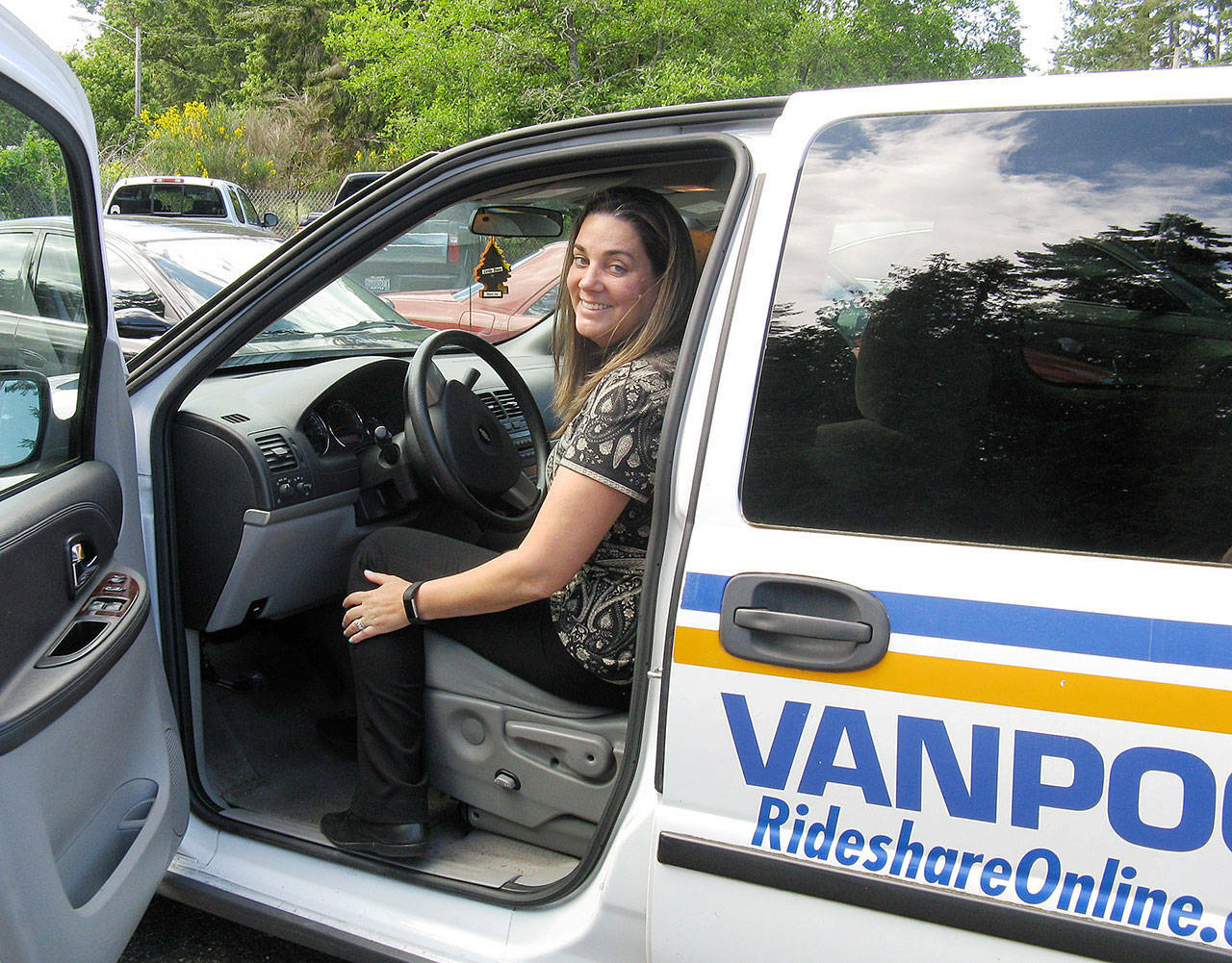More commuters on Whidbey Island are choosing a unique form of carpooling to get to and from work.
Vanpooling – soon to be known as rideshare – involves a group of people using Island Transit vehicles to commute to jobs off- island. Rideshares can have anywhere from three to 12 people, according to Selene Muldowney-Stratton, marketing and communications officer for the agency.
Muldowney-Stratton said the goal of the program is to get single occupancy vehicles off the road, reduce greenhouse gas emissions and reduce the strains on the ferry system and highways.
Island Transit is currently advertising a list of 13 vanpool groups that are searching for more riders. The various groups originate in Oak Harbor, Greenbank, Freeland and Langley and travel to Everett and other mainland destinations. Those interested can find out more information at islandtransit.org.
“Travel faster in carpool lanes, get preferred parking at many work sites, enjoy priority ferry boarding, avoid tolls and more,” according to Island Transit. “Avoid the expense and hassle of another car out on the road.”
The agency has recently purchased five Tesla Model 3 cars for the program. Muldowney-Stratton said they are cost effective, have one of the highest safety standards and require little maintenance. They are also fully electric and are part of Island Transit transitioning to a zero emissions fleet.
Rideshare has proved popular among residents. Freeland resident Carter McCoy has been the driver for his commuter van for about a year and a half. He used to drive his own car to work in Mill Creek every day, but the COVID-19 pandemic forced him to change his routine.
“When (the ferry) went down to one boat, I had to drive around the North End because it was less time to wait for the ferry,” he recalled. “So I started searching for solutions and this one came up.”
He and five other members of the rideshare meet every weekday morning at the Clinton Park and Ride and continue on to their respective workplaces.
“Island Transit does a great job of making it as easy as possible for us,” McCoy said.
Island Transit charges a monthly fee based on the mileage of the rideshare; McCoy’s group splits it evenly. The fee covers fuel, insurance, maintenance and the ferry fee. McCoy said using rideshare has helped him save a lot of money and time. The van has priority boarding so they don’t have to wait in the ferry line.
McCoy is the driver because his job is the furthest stop away from the ferry. He said he doesn’t mind driving as the van Island Transit provides is in good shape and the agency takes care of all of the maintenance. He also enjoys the conversation and spending time with his fellow vanpoolers every day.
Recently, two of their group dropped out – one person retired and another had a baby – but McCoy said he quickly found two other commuters to replace them.
Muldowney-Stratton said Island Transit currently has 24 rideshare groups in operation.
”As long as they start or end in Island County (including Camano Island), there really isn’t a restriction on where they go as long as they aren’t traveling outside of Washington,” she wrote in an email.
Washington has the largest public rideshare fleet in the nation, according to the Washington State Department of Transportation. Each workday, around 18,000 commuters travel in more than 3,000 rideshare vehicles.
Those interested in using the rideshare program should call 360-678-7771 and ask for rideshare or email vanpool@islandtransit.org.



